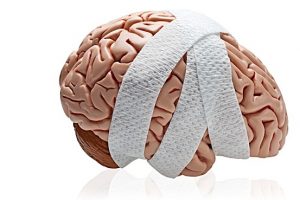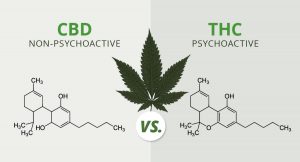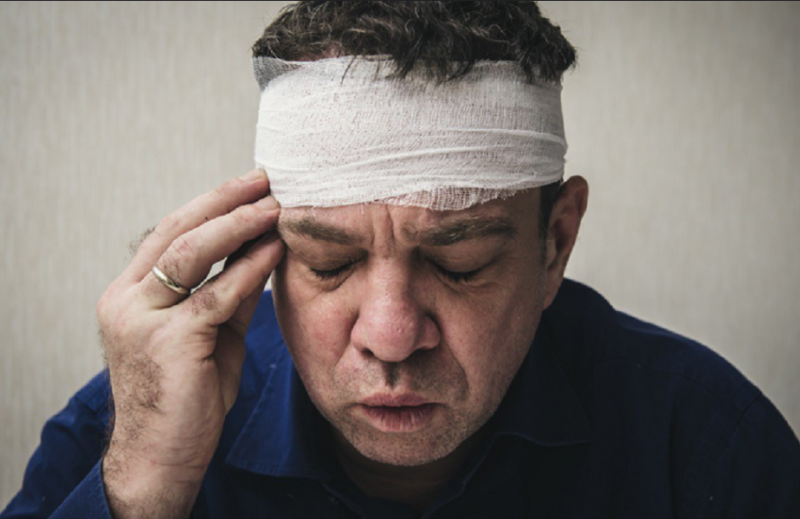Concussions, AKA mild traumatic brain injuries (mTBIs), can be frustrating to deal with. This is because they can cause many side effects including: headaches, confusion, nausea, depression, amnesia, trouble sleeping, and difficulty with concentration and learning. Although the symptoms usually disappear after a few weeks, as the brain heals, during the concussion one must put their life on hold. This is because the only current treatment for concussions is getting plenty of physical and mental rest. Along with over-the-counter medications, to make the person comfortable and alleviate headaches. This leads to the question, are there other medications that could be taken to help after a concussion?
 In The Brain
In The Brain
First, it is important to understand what is happening in the brain when someone gets a concussion. When the brain gets shook around in the skull there can be injuries to axons which is a part of a neuron. Neurons are cells that send signals to one another which allows us to function. The axons could be bent, broken, or dead due to impact. The impact causes a leaky membrane on the neuron. This causes ions like calcium and sodium to come into the axon, allowing the neuron to become imbalanced and depolarized. Depolarization is important because when a neuron becomes depolarized it has more positive ions, which makes the neuron altogether more positive. A positively charged neuron wants to signal to other neurons.
After depolarization, the living, damaged neurons will then over signal causing glutamate release. Glutamate is a neurotransmitter that travels to other neurons making them fire. All of this firing causing a lot of activity to happen in the brain. The brain knows that the ions are not balanced, so it will use a lot of sodium, potassium, and ATP to try to balance out these ions and get the voltage back to normal. Burning ATP provides energy to the brain. This will then induce hyperglycolosis and metabolic uncoupling which contributes to behavior issues one might experience during a concussion.
Following, the burning of ATP forms lactate. Since the brain is burning a lot of ATP, there is lactate accumulation and calcium storing in the mitochondria. The mitochondria normally makes ATP. Calcium blocks the mitochondria from making ATP levels from returning to normal. Further, all this stress happening in the brain causes hypometabolism. Hypometabolism happens because the brain is using all this energy to balance ions, it isn’t able to use the energy to transport other things correctly. Calcium that is not stored in the mitochondria activates protease which is a protein that starts destroying other proteins, which then leads to apoptosis, AKA cell death. This whole process and the ions can get restored and fixed within roughly 10 days with proper treatment, but it is very easy to obtain other concussions during the healing process. If one gets a second concussion, the healing process takes much longer and there might be further long-term damage to the brain.
 CBD Vs. THC?
CBD Vs. THC?
Before explaining CBD as a treatment for concussions, it is important to note where it comes from and clear up any misconceptions that there might be about it. Cannabidiol (CBD) is a chemical found in the plant commonly known as marijuana or hemp. There are over 80 chemicals identified in this plant. One of which is the psychoactive chemical known as delta-9-tetrahydrocannabinol (THC). Like other chemicals in hemp, CBD can be extracted from hemp with little to no trace amounts of THC. Therefore, CBD does not get you high.
CBD as a Treatment?
In one study, researchers induced a concussion in male mice. After the concussion, the mice were placed in a comfortable environment during the experiment. Meanwhile, the mice were given oral CBD treatment. After 14 and 60 days there were 7 tests performed. Some of the tests showed CBD significantly improved symptoms in mice. The 7 tests included: Allodynia Test, Rotarod Test, Open Field Test, Resident-Intruder Test, Three Chambers Sociability Test, Tail Suspension Test and Microdialysis Test.
These were the results:
- Allodynia Test-
- CBD treatment showed signs of reduced pain in mice.
- Open Field Test-
- CBD treatment showed little significant changes in mice, but CBD did decrease “reckless behavior” shown by less rearing.
- Resident-intruder test-
- CBD treatment significantly decreased aggressive behavior in mice.
- Tail suspension Test-
- CBD treatment decreased depression like behavior, shown by decreased immobility in mice.
- Microdialysis Test-
- CBD treatment administered prior to 60 days after trauma, normalized glutamate and D-Aspartate levels in the brain of mice.
- Rotarod Test-
- CBD treatment showed no significant difference in motor coordination impairment in mice.
- Three Chambers Sociability Test-
- CBD treatment showed no significant changes in social interaction in mice.
The data from this study shows promising results for CBD as a treatment for concussions. This being said, further research must be done to understand the full effects CBD has in concussions and on the body. For information about CBD as a treatment for other illnesses and side effects CBD might cause go to: https://www.medicalnewstoday.com/articles/cbd-oil-effects#side-effects
References
https://www.webmd.com/vitamins/ai/ingredientmono-1439/cannabidiol-cbd
https://www.frontiersin.org/articles/10.3389/fphar.2019.00352/full
